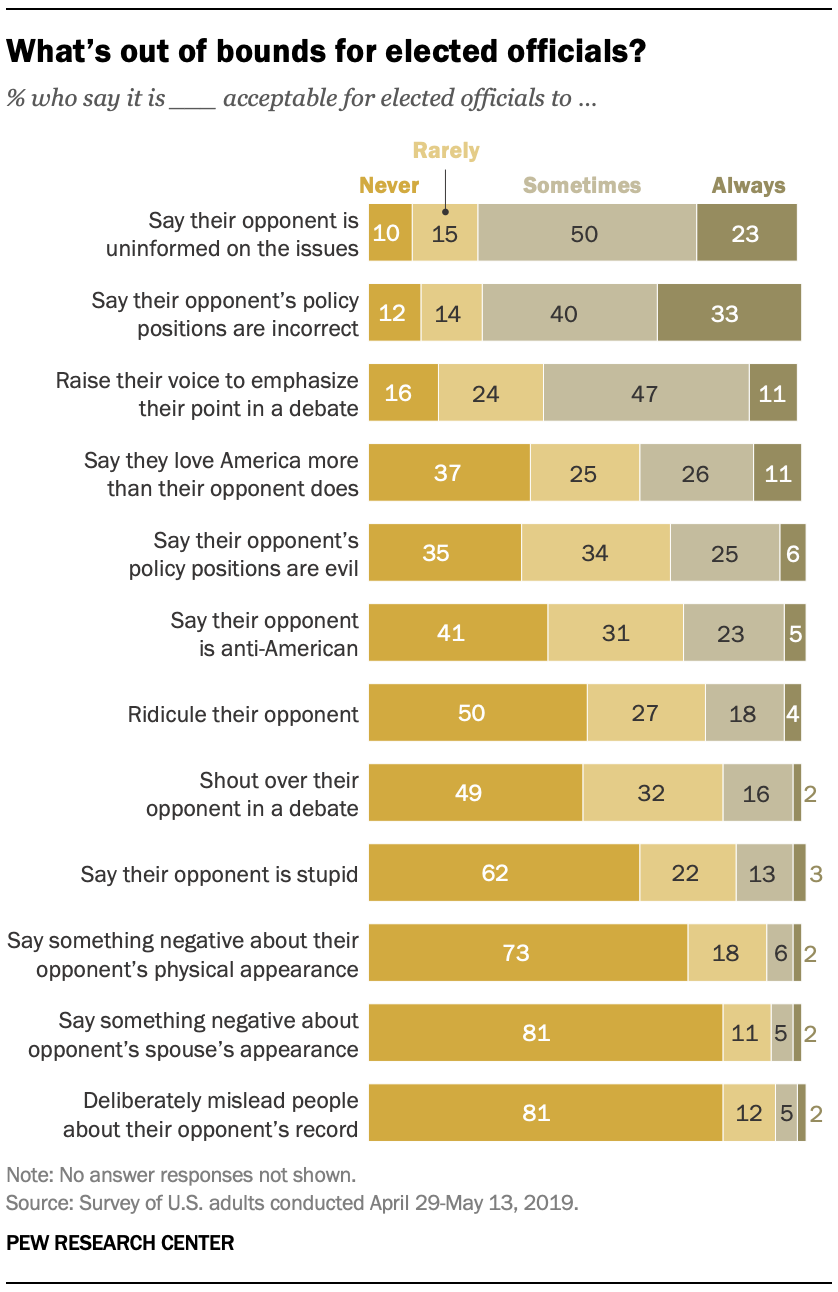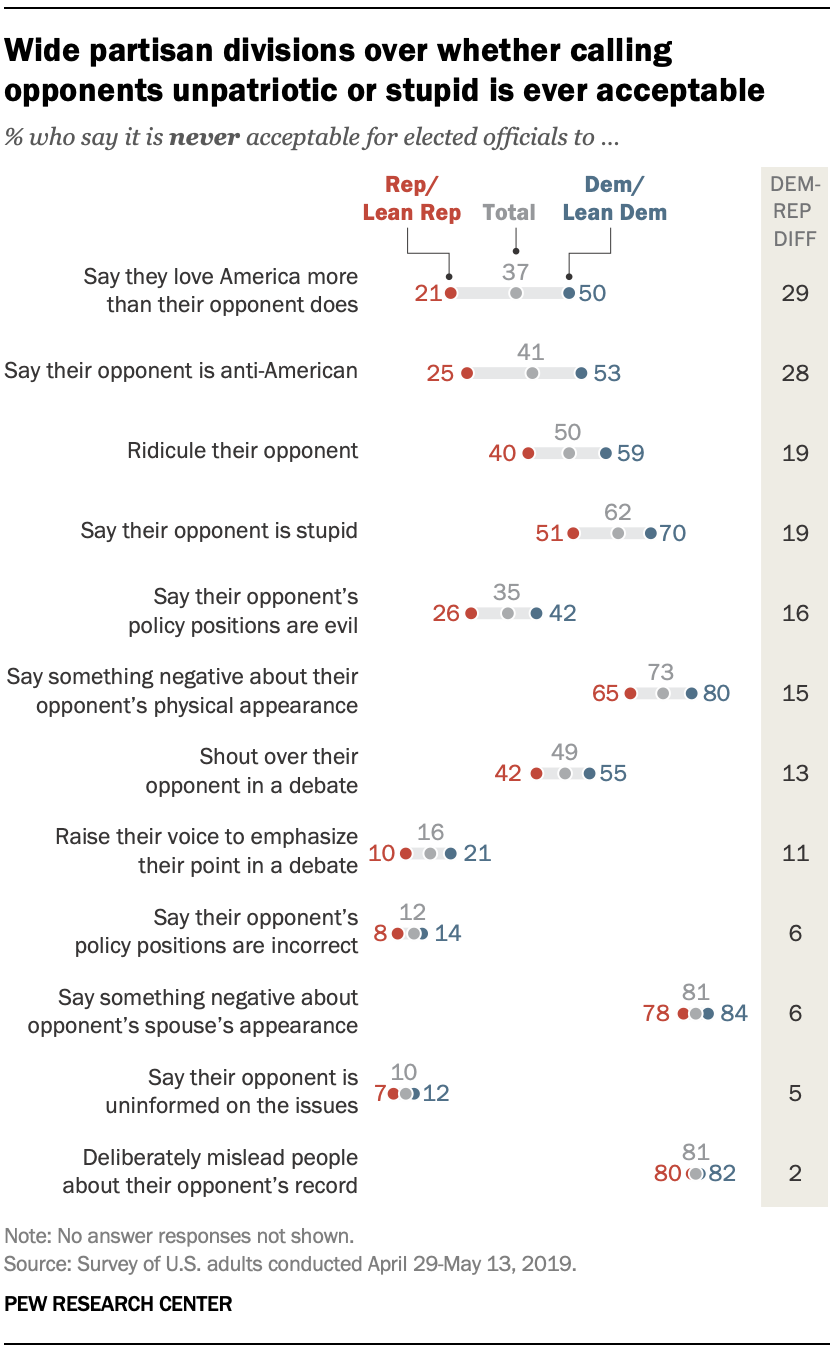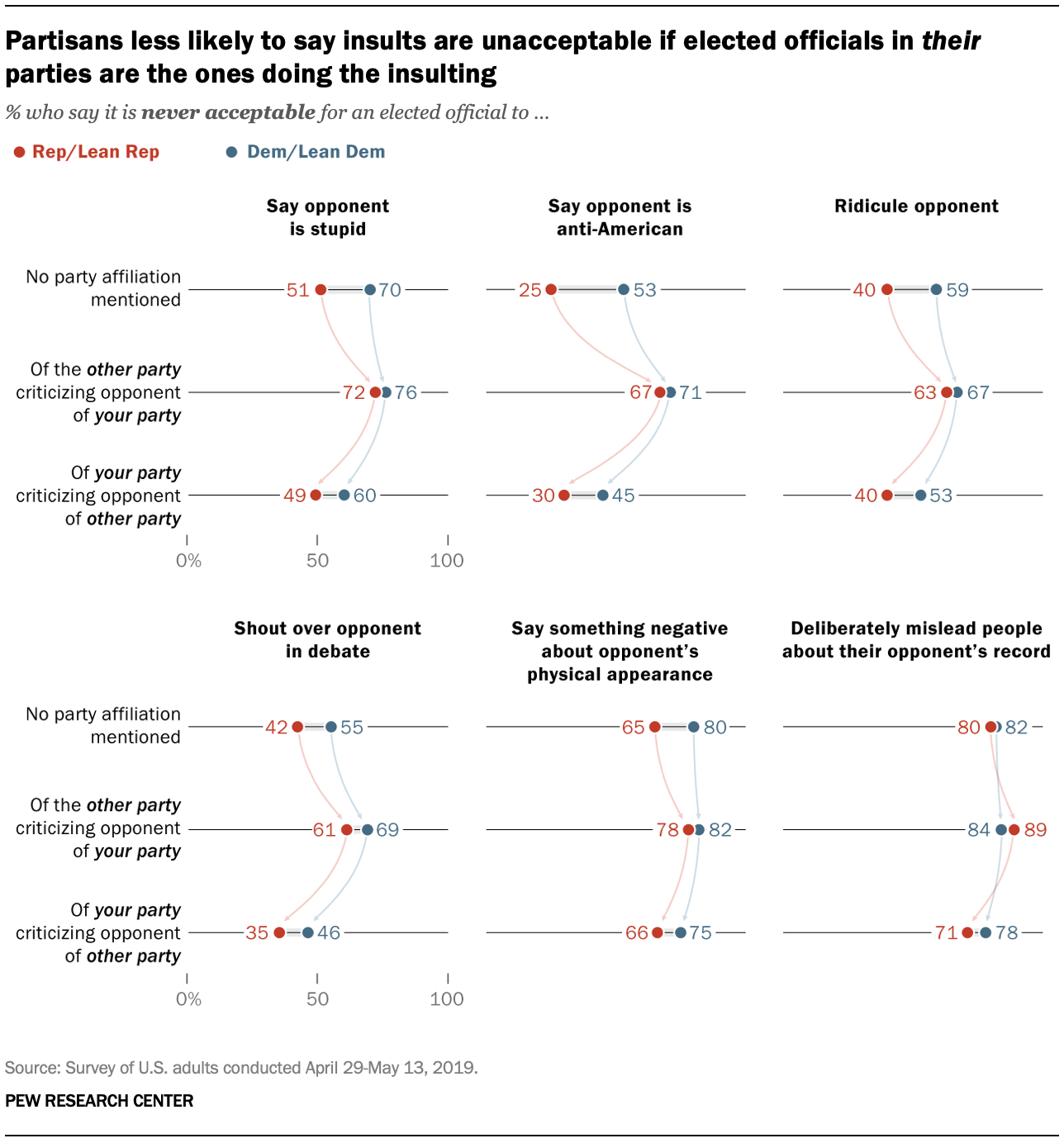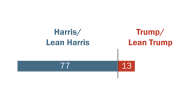The public draws distinctions when it comes to the types of speech and behavior they deem acceptable from elected officials. Wide majorities of Americans say it is acceptable for elected officials to call their opponent uninformed on the issues and to raise their voice in a debate, but there is much lower tolerance for officials personally mocking their opponents or deliberately mischaracterizing their record.

Roughly three-quarters of Americans say it is at least sometimes acceptable to say their opponent’s policy positions are incorrect (73%) or that their opponent is uninformed on the issues (74%). A narrow majority (58%) says it is at least sometimes acceptable for elected officials to raise their voice in a debate. Few see these behaviors as never acceptable.
But there are behaviors that overwhelming majorities say have no place in political discourse. About eight-in-ten (81%) say it is never acceptable to deliberately mislead people about an opponent’s record or to say something negative about the physical appearance of an opponent’s spouse (81%), while 73% say it is never acceptable to criticize their opponent’s appearance – and nine-in-ten or more consider these behaviors at most rarely acceptable.
The public also generally views calling one’s political opponent “stupid” as out of bounds: 62% say this is never acceptable, while an additional 22% say it is rarely acceptable. And about half of the public says it is never acceptable for an official to shout over their opponent in a debate (49%) or to ridicule an opponent (50%), with three-quarters or more saying these behaviors are no more than rarely acceptable.
However, public opinion is more mixed over the acceptability of calling an opponent’s policy positions “evil” – while 35% say this is never acceptable and 34% say it is rarely acceptable, 31% say it is at least sometimes acceptable. Similarly, while 41% believe that it is never acceptable for an elected official to say their opponent is “anti-American,” 31% say this is rarely acceptable and 27% say this is at least sometimes acceptable.
Partisans differ over acceptability of some types of political criticism

Democrats are more likely than Republicans to view a range of behaviors as out of bounds. And some of the largest partisan gaps are over whether it is acceptable for elected officials to call into question the patriotism of their political opponents.
About three-quarters of Democrats and Democratic-leaning independents (76%) say it is rarely or never acceptable for an elected official to say “they love America more than their opponent does,” including half who say this is never acceptable.
By comparison, 45% of Republicans and Republican leaners say it is rarely or never acceptable for an official to say they love America more than their opponent – including just 21% who consider this completely out of bounds in politics. The pattern of opinion about whether it is acceptable to call one’s opponent anti-American is nearly identical.
There also are substantial partisan gaps in other areas, including the acceptability of ridiculing one’s opponent (59% of Democrats say this is never acceptable vs. 40% of Republicans), calling them stupid (70% vs. 51%) or saying their policy positions are evil (42% vs. 26%). But Democrats and Republicans are in general agreement that deliberately misleading people about their opponent’s record is out of bounds (82% of Democrats and 80% of Republicans say this is never acceptable), as is criticism of a spouse’s appearance (84% of Democrats, 78% of Republicans say it’s never acceptable).
Insults are seen as more acceptable when your party is the instigator
Partisans also have different views of how acceptable these types of political insults are, depending on the partisanship of the political officials involved. For example, in the case of how acceptable it is to call an opponent’s policy positions evil:





